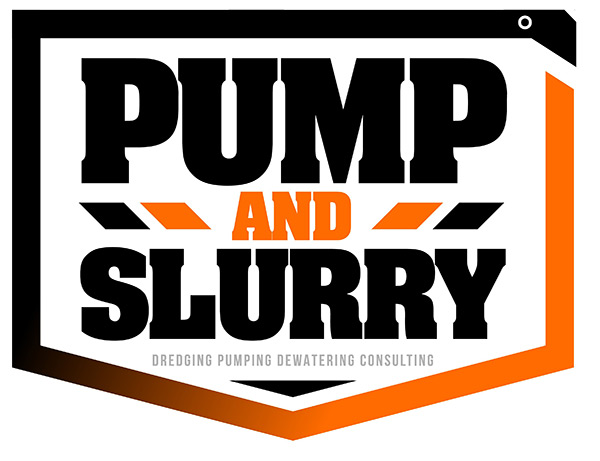Pumping and Dredging Project Consultation in Myanmar | Pump and Slurry
Myanmar’s industrial landscape encompasses various sectors, including agricultural processing, wood and wood products, mining (copper, tin, tungsten, iron), cement and construction materials, pharmaceuticals, fertilizer, oil and natural gas, garments, and jade and gems. In this dynamic environment, pumping, dredging, and dewatering services play crucial roles across various industries. For instance, these services are essential for irrigation in agricultural processing, ensuring consistent water supply for crop cultivation and processing activities. In the wood and wood products industry, pumping and dredging are necessary to transport logs and timber through waterways, facilitating extraction and transportation in remote forested areas. Moreover, in mining sectors like copper, tin, and tungsten, efficient pumping and dredging are vital for managing water inflow in mines and tailings ponds, ensuring safe and efficient extraction operations. In construction and infrastructure development, dewatering services are also indispensable for maintaining dry and stable work sites, preventing waterlogging and soil erosion. In oil and natural gas, pumping and dredging are critical in offshore drilling operations and pipeline maintenance, ensuring uninterrupted energy production and distribution. Pumping, dredging, and dewatering services are integral to Myanmar’s industrial landscape, supporting economic growth, infrastructure development, and natural resource management across diverse sectors.

Pumping and Dredging Project Consultation in Myanmar
Myanmar’s slurry pumping and dredging projects are essential for sustaining the nation’s industrial activities, particularly in sectors like mining and construction. These projects play a vital role in facilitating the extraction and transportation of minerals such as copper, tin, and tungsten, contributing significantly to Myanmar’s economy. Slurry pumping enables the efficient movement of ore slurry from mining sites to processing facilities while dredging assists in maintaining access to mineral deposits by clearing sediment and debris from water bodies near mining operations. Moreover, in construction projects, pumping and dredging projects are crucial for dewatering construction sites and managing water resources effectively, ensuring the smooth progress of infrastructure development initiatives. Overall, pumping and dredging projects in Myanmar are indispensable for supporting industrial growth, natural resource management, and infrastructure development.
The sales and rentals of slurry pumps and dredging equipment in Myanmar support the nation’s industrial and infrastructure development endeavors. As demand for efficient pumping and dredging solutions continues to rise, particularly in the mining and construction sectors, the availability of high-quality equipment through sales and rental channels becomes increasingly crucial. These services provide businesses and project managers access to advanced technology and expertise, enabling them to optimize project efficiency, reduce downtime, and mitigate environmental impacts. Moreover, by offering flexible rental options, companies can adapt to fluctuating project requirements and scale their equipment fleet accordingly, enhancing productivity and competitiveness in the market. The sales and rentals of slurry pumps and dredging equipment also contribute to knowledge transfer and capacity building in Myanmar’s industrial sector, fostering innovation and skills development for sustainable growth. These services are vital in supporting the execution of pumping and dredging projects in Myanmar, driving economic growth and industrial innovation.
Our Services
Consulting Services
Pumping & Slurry Transport
Dredging Consulting
Dewatering
Equipment Sales & Rentals
Equipment Rental
Equipment for Sale
Customization Services
Industries in Myanmar Requiring Slurry Pumping, Dredging, and Dewatering
Agricultural Processing Industry
To ensure sustainable irrigation and efficient water management, efficient pumping, dredging, and dewatering are crucial for Myanmar’s agricultural processing industry. In this industry, pumping systems are used for irrigation, providing a consistent water supply for crop cultivation and processing activities. Dredging may be necessary for irrigation canals and waterways to maintain flow capacity and prevent sedimentation, ensuring reliable water distribution to agricultural lands. Additionally, dewatering plays a critical role in managing waterlogged fields and preventing crop damage, particularly during the monsoon season. Overall, efficient pumping, dredging, and dewatering services are vital for supporting Myanmar’s agricultural productivity and food security.
Wood and Wood Products Industry
Efficient pumping, dredging, and dewatering are essential for Myanmar’s wood and wood products industry to facilitate timber extraction and transportation in remote forested areas. In this industry, pumping systems transport logs and timber through waterways, enabling efficient harvesting and transportation from forest sites to processing facilities. Dredging may be necessary for rivers and streams used for log transport to maintain navigability and prevent obstruction from sediment buildup. Additionally, dewatering is crucial in timber processing plants to remove excess moisture from wood materials, ensuring product quality and preventing decay. Efficient pumping, dredging, and dewatering services are vital for sustaining Myanmar’s wood industry and promoting responsible forestry practices.
Mining Industry
Efficient pumping, dredging, and dewatering are indispensable for supporting mineral extraction and processing operations in Myanmar’s mining industry. In this industry, slurry pumping is essential for transporting ore slurry from mining sites to processing facilities, ensuring efficient extraction of minerals like copper, tin, tungsten, and iron. Dredging is critical in maintaining access to mineral deposits by clearing sediment and debris from water bodies near mining operations. Moreover, dewatering is necessary for controlling groundwater levels in underground mines, preventing flooding, and ensuring the safety of workers and equipment. Efficient pumping, dredging, and dewatering services are vital for sustaining Myanmar’s mining industry and driving economic development.
Cement and Construction Materials Industry
Efficient pumping, dredging, and dewatering are crucial for supporting infrastructure development and construction projects in Myanmar’s cement and construction materials industry, and in this industry, pumping systems transport cement, aggregates, and water to construction sites, ensuring efficient mixing and placement of concrete and mortar. Dredging may be necessary for water bodies to source materials such as sand and gravel and maintain and prevent them. Additionally, dewatering is critical in construction sites to remove excess water from excavation pits and foundation trenches, ensuring stable and dry work environments. Efficient pumping, dredging, and dewatering services are vital for sustaining Myanmar’s construction industry and supporting infrastructure development initiatives.
Our Presence in the Country

Yangon
Conclusion
Myanmar’s diverse industries, ranging from agricultural processing to mining and construction, rely heavily on the critical support provided by pumping and dredging projects in Myanmar. These projects are essential for sustaining industrial activities, ensuring efficient water management, and supporting economic growth across various sectors. From facilitating mineral extraction in the mining industry to promoting agricultural productivity through irrigation, pumping, and dredging, projects play pivotal roles in driving development and prosperity in Myanmar. As the country continues to expand its industrial footprint and infrastructure, the importance of investing in pumping and dredging projects in Myanmar cannot be overstated. By prioritizing these projects, Myanmar can overcome challenges, maximize resource utilization, and pave the way for a sustainable and resilient future.






